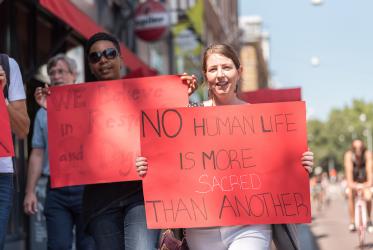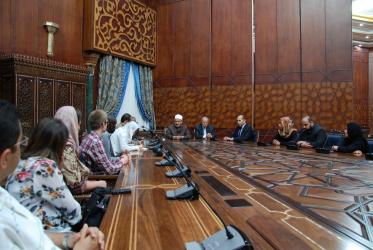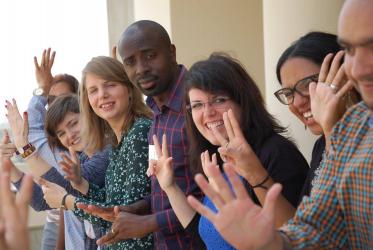Displaying 1 - 20 of 20
WCC Executive Committee envisions future for one ecumenical movement
08 November 2018
WCC executive committee tackles public issues
07 November 2018
WCC moderator, general secretary address Executive Committee
02 November 2018
What difference does dressing in black make?
02 August 2018
Gender-based violence concerns ‘all of humanity’
11 July 2017
Women in development create space for hope in Egypt
15 June 2017
WCC/UN conference calls for coordinated action on refugee crisis
20 January 2016
WCC launches global ecumenical network for advocacy for just peace
09 December 2014
WCC advisory group to promote gender justice
05 December 2014














